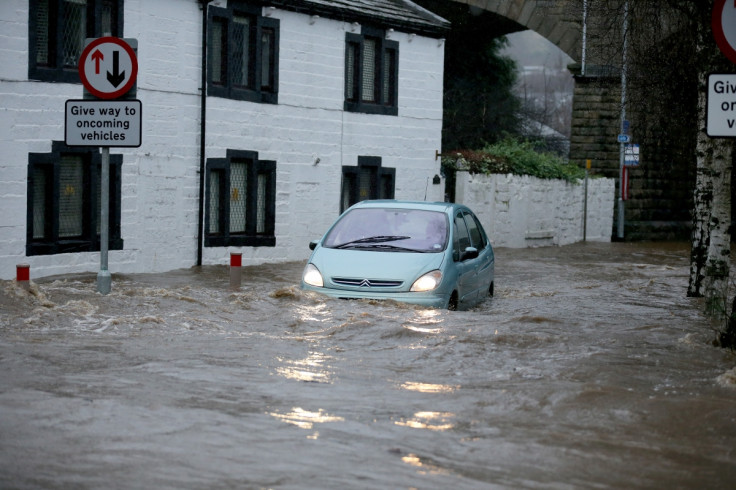UK floods: Political rowing and compensation complaints begin as swathes of Britain submerged

Criticism of the government has begun over inadequate flood defences and questions are being raised over compensation for victims. Amid calls for a root and branch review of the government's environment policies, Environment Minister Lynn Truss stated it was "right to say" that flood defences have been "overwhelmed".
When asked about how much money was being allocated to help the flood victims, Truss said the priority was to protect lives and homes. "We're still in a situation with major flood warnings, people need to look at the latest advice from the Environment Agency, from the emergency services. That's really important because in many places we have not yet reached the high point. So it's really important that is the effort over the next few days."
On the issue of compensation she pointed to government efforts in the aftermath of flooding in Cumbria earlier this month. "Of course, we're looking at schemes similar to what we put in place in Cumbria to make sure families and businesses are supported. We're looking at that at the moment, but my priority is making sure that we have a good response effort, that we give families, communities, all the help they need to make sure we protect lives and we protect people's homes."
Meanwhile, Labour politicians are criticising the Environment Agency for "ignoring warnings" that flooding on this scale was likely to happen. They say they are amazed that so far there have been no reported casualties.
The recent reductions in government expenditure have come under fire. Rochdale MP Simon Danczuk said: "The Government's massive budget cuts have left the Environment Agency as a remote and impotent organisation which is unable to respond sufficiently."
The government has so far not responded to this charge. However, Floods Minister Rory Stewart has blamed climate change for the havoc, saying "What we've seen is rainfall levels that nobody's ever seen before."
He added that flood defences designed two years ago were never built to withstand this level of rainfall. In the meantime arguments are raging over whether sufficient funds have been spent on flood protection barriers.
Flimsy flood defences in the village of Ribchester, Lancashire, for example, were rapidly swept aside as the River Ribble overflowed its banks and water poured through the streets. Locals warned to abandon their homes are distraught and angry.
Kathleen Simpson said: "I live in Todmorden and have just been flooded for the third time, I have no insurance as my insurers cancelled the policy after I had to take them to the ombudsman. The UK gives funding overseas for flood defence – I believe it is very important for those like myself who have no insurance policy to be heard as through no fault of their own they are denied insurance. What are the uninsured meant to do?"
In West Yorkshire, similarly, millions of pounds have been spent on flood defences to protect the Calder Valley towns, but they were no match for the rainfall. Meanwhile, farmers in the north of England have complained that bureaucratic restrictions imposed by the Environment Agency restrictions have made it impossible to carry out flood defence work on their own property without "jumping through hoops".
Cumbrian hill farmer Mary Lightfoot said: "There is quite a bit of red tape to go through first before you can even think about hiring a digger to do some dredging. You can't do a thing without getting the proper permission. It's a lengthy procedure. A large chunk of our caravan park was washed away during the recent floods. Perhaps more regular dredging would have stopped this."
© Copyright IBTimes 2025. All rights reserved.





















